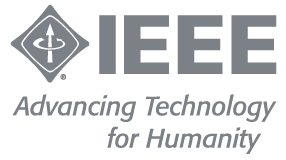Entrepreneurship has always been considered as an area that is coping with uncertainties and high levels of risk. On the other hand, scientists are used to working and making decisions based on proofs and complete data. What connects science and entrepreneurship is innovation.

Unlike scientists, entrepreneurs are operating in an uncertain environment trying to bring and make successful an innovative product or service on the market. Stereotypical characteristics related to entrepreneurs are logic, good organization, responsibility, confidence, social extroversion, excellent communication skills, and ability to cope with failure. They need to be adaptive to make changes, to make decisions promptly. Entrepreneurs are not gamblers. Risk assessment is processed with high attention, calculating the 'acceptable' risk. On the other side, scientists are used to working in a 'safe', certain environment, making decisions based on proofs and complete data. But, these two fields are not so incompatible. There is no reason why creative scientists should not be entrepreneurs.
When talking about the possible integration of scientists with entrepreneurship, based on our experience we can conclude that it is absolutely possible. In fact, what we've found is that SCIENTISTS seem to be BETTER at integrating into entrepreneurship than ENGINEERS. Here are some observations about scientists and entrepreneurs, we have found so far:
For all those scientists that have innovative and interesting ideas, here are some guidelines that are pointing out why should you start thinking about entrepreneurship, if you answer positively to the following questions:
The most important things scientists should consider when thinking about becoming entrepreneurs are the following:
If you decide to 'put on shoes' of an entrepreneur, you need to be aware that it required availability to make compromises pretty often. 'Science' and 'Compromise' are not getting along for many times, however, when developing a product or a service, you need to make a compromise with market demand, and consumer feedback.
Some well-known examples of founders with a scientific background are Larry Page and Sergey Brin, that founded Google in 1988 when they were Ph.D. students at Stanford University. An initial public offering (IPO) took place in 2004 and Google moved to its headquarters in Mountain View, California. Additionally, in 2001 Google's Investors felt the need to have a strong internal management, and they agreed to hire Eric Schmidt as the Chairman and CEO of Google replacing Larry Page.
There are many other similar examples of scientists launching a successful company in Silicon Valley. Bruce Borden co-founded 3com in 1979. Bruce holds a degree in Mathematics from Harvard University. 3Com Corporation was the world’s number two provider of computer networking products, systems, and services, trailing only Cisco Systems, Inc. In 2010, Hewlett-Packard completed the acquisition of 3Com, and it no longer exists as a separate entity.


Unlike scientists, entrepreneurs are operating in an uncertain environment trying to bring and make successful an innovative product or service on the market. Stereotypical characteristics related to entrepreneurs are logic, good organization, responsibility, confidence, social extroversion, excellent communication skills, and ability to cope with failure. They need to be adaptive to make changes, to make decisions promptly. Entrepreneurs are not gamblers. Risk assessment is processed with high attention, calculating the 'acceptable' risk. On the other side, scientists are used to working in a 'safe', certain environment, making decisions based on proofs and complete data. But, these two fields are not so incompatible. There is no reason why creative scientists should not be entrepreneurs.
When talking about the possible integration of scientists with entrepreneurship, based on our experience we can conclude that it is absolutely possible. In fact, what we've found is that SCIENTISTS seem to be BETTER at integrating into entrepreneurship than ENGINEERS. Here are some observations about scientists and entrepreneurs, we have found so far:
- Scientists are systems thinkers, especially physicists. They look at integrated whole systems and complex interactions.
- Scientists are used to having theories, postulates, and other such concepts that may be disproved and changed.
- Scientists are used to experimenting and going through the process of discovery.
For all those scientists that have innovative and interesting ideas, here are some guidelines that are pointing out why should you start thinking about entrepreneurship, if you answer positively to the following questions:
- Do you initiate projects start and development, managing its processes?
- Do you consider yourself a team worker? Are you feeling comfortable with managing a team?
- Are you feeling confident with the responsibility to make the final decision, even the situation is not completely defined?
- Do you consider yourself easy going, flexible, and adaptable to changes?
- Are you determined and patient enough to wait for the right opportunity to represent and sell your product?
- Scientists tend to underestimate the importance of leadership, team, organizational culture, and other "touchy-feely crap"!
- Scientists tend to be skillful at science and technology, and even embrace process discipline required to be successful as entrepreneurs. However, they may underestimate the importance of the PEOPLE aspects of creating an entrepreneurial team and leading that team. Sometimes people from a technical background call this the "soft skills", to which I say "The soft stuff is the hardest!" And still, others call it "touchy-feely crap", to which I roll my eyes and say "Good luck getting anything done that requires a team!"
- A group of people isn't a real team, and just because you are their manager doesn't mean they will perceive you as a leader.
If you decide to 'put on shoes' of an entrepreneur, you need to be aware that it required availability to make compromises pretty often. 'Science' and 'Compromise' are not getting along for many times, however, when developing a product or a service, you need to make a compromise with market demand, and consumer feedback.
Some well-known examples of founders with a scientific background are Larry Page and Sergey Brin, that founded Google in 1988 when they were Ph.D. students at Stanford University. An initial public offering (IPO) took place in 2004 and Google moved to its headquarters in Mountain View, California. Additionally, in 2001 Google's Investors felt the need to have a strong internal management, and they agreed to hire Eric Schmidt as the Chairman and CEO of Google replacing Larry Page.
There are many other similar examples of scientists launching a successful company in Silicon Valley. Bruce Borden co-founded 3com in 1979. Bruce holds a degree in Mathematics from Harvard University. 3Com Corporation was the world’s number two provider of computer networking products, systems, and services, trailing only Cisco Systems, Inc. In 2010, Hewlett-Packard completed the acquisition of 3Com, and it no longer exists as a separate entity.

Bruce Borden at TVLP session in summer 2018
More recently Krish Ramakrishnan, founder of Blue Jeans Network announced its acquisition by Verizon in April 2020. BlueJeans network was founded in 2009 in Mountain View with a passion to provide an interoperable cloud-based video meeting service that connects many users across different devices, platforms, and conference programs. Krish holds a master degree from Monmouth University and Bsc (Physics) from Madras University, India.
What connects these three founders is innovation and passion to make a change by developing a new product or service based on a solid scientific knowledge. They all started to develop their products at an early age, while studying, slowly crossing the border between science and entrepreneurship. The path of success was not short. Becoming a successful scientist, such as an entrepreneur, is a long term process with a lot of pitfalls. For both scientists and entrepreneurs, success requires two things: dedication and hardworking.
Kimberly Wiefling and Tijana Kovijanić of the TVLP Institute
Questions for Tijana and Kimberly: technews@tvlp.co
Kimberly Wiefling, TVLP mentor, globally recognized author on Business Leadership
Ph.Credit:Christina @ wocintechchat.com on Unsplash
What connects these three founders is innovation and passion to make a change by developing a new product or service based on a solid scientific knowledge. They all started to develop their products at an early age, while studying, slowly crossing the border between science and entrepreneurship. The path of success was not short. Becoming a successful scientist, such as an entrepreneur, is a long term process with a lot of pitfalls. For both scientists and entrepreneurs, success requires two things: dedication and hardworking.
Kimberly Wiefling and Tijana Kovijanić of the TVLP Institute
Questions for Tijana and Kimberly: technews@tvlp.co
Kimberly Wiefling, TVLP mentor, globally recognized author on Business Leadership
Ph.Credit:Christina @ wocintechchat.com on Unsplash


















